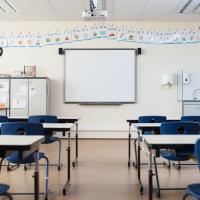Country news
Denmark: Agreement on a new upper secondary education programme

The Danish government and two opposition parties in the Danish Parliament have agreed on a reform that reorganises the education landscape after primary and lower secondary education and establishes a new, vocationally and professionally oriented upper secondary education programme (epx programme). The reform is part of a comprehensive reform plan for the whole Danish education system.
Italy: A new curriculum for preprimary, primary and lower secondary education by 2026/2027

The Ministry of education and merit has revised the curriculum for preprimary school and for the first cycle of education. The new curriculum will apply from school year 2026/2027.
Estonia: Changes to the start of the school day and learning environment rules from 2026

Starting in September 2026, Estonian schools will begin the school day at 9 AM instead of the current standard of around 8 AM. The change follows government approval of a new national regulation on the school learning environment, which merges several earlier regulations into one, easing administrative burden and strengthening the focus on students’ health and well-being. Research shows that a later start time better matches adolescents’ sleep and developmental needs.
From autumn 2025, several other changes will take effect to improve the daily school experience:
Norway: A boost for higher vocational education

Participation in higher vocational education in Norway is increasing. A recent white paper emphasises the role of vocational qualifications in addressing labour market skill shortages. Historically limited to ISCED level 5, a recent reform allows institutions to offer education at ISCED levels 6 and 7.
Spain: New civil protection training plan for schools

A national plan has been launched in Spain to promote a culture of prevention and ensure that all members of the school community are prepared to respond effectively in emergency situations, whether caused by natural events or human actions.
A coordinated initiative aligned with national legislation
Montenegro: Education for the future - adopting the Education Reform Strategy 2025-2035

This strategic document lays the foundations for a systemic, high-quality and sustainable reform of the education system, with the aim that every child has access to quality education, one that develops the skills and knowledge needed for life in the 21st century. We are building an education system tailored to every child!
Germany: Starting Opportunities Programme

The Federation and the Länder agreed on the Starting Opportunity Programme (Startchancen-Programm). The programme aims to address the significant decline in skills development among many pupils.
Slovakia: Teachers' salary increase and new remuneration system

Slovak education staff will see a significant improvement in their remuneration. Parliament has approved an increase in teacher salaries and has introduced a new remuneration system that takes into account their quality and performance. At the same time, the Ministry is preparing further measures to improve working conditions in schools and to strengthen the attractiveness of the teaching profession.
Netherlands: A ban on mobile phones in the classroom

As of this academic year (2024/2025), the Dutch government came to an agreement with Dutch representatives of education organisations, teachers, parents, and pupils to ban all mobile phones in the classroom at all school levels. As a measure intended to reduce distractions, improve focus, and diminish phone-dependency while learning, it also yields enticing results for social contacts amongst pupils.
Türkiye: ‘Young R&D’ initiative to foster a culture of research & development in schools

The Turkish Ministry of National Education (MoNE) has launched a nationwide initiative entitled ‘Young R&D’ to support the early discovery and development of students’ talents and capacities, particularly in scientific, technological, and vocational fields. The initiative is coordinated by the Ministry’s Directorate of Strategy Development and implemented by the Research & Development (R&D) units of provincial directorates of national education in all 81 provinces.
